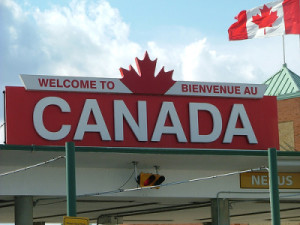 I receive many inquiries about the importance of being bilingual in the Government of Canada. But, the question is: Is it important to be bilingual to get a job in the Government of Canada? My answer: it depends. Canada has two official languages: English and French. The Official Languages Act of 1969 (click here to read the act) outlines the equal status of each language in Canada; however, there are a few factors to keep in mind from a department’s point of view.
I receive many inquiries about the importance of being bilingual in the Government of Canada. But, the question is: Is it important to be bilingual to get a job in the Government of Canada? My answer: it depends. Canada has two official languages: English and French. The Official Languages Act of 1969 (click here to read the act) outlines the equal status of each language in Canada; however, there are a few factors to keep in mind from a department’s point of view.
Here are the top three factors that are considered as to if bilingualism is necessary in the position that you are applying to:
1) Classification: Certain classifications such as FS (Foreign Service) will usually require you to be bilingual before obtaining an indeterminate position. Simply put, all embassies and consulates must offer services in both English and French. As career in the FS stream usually implicates relocation outside Canada sometime during your career (especially if you are in a rotational position), hence being bilingual is often a pre-requisite.
2) Location: If you are considering working in the National Capital Region, you may be required to be bilingual; however, there are many departments that have a higher percentage of bilingual employees than others. A position in Quebec City may require a French essential while a position in Calgary may require an English essential. Each department and each region dictates their needs.
It is also important to remember that there are linguistic minority groups across Canada. Hence being bilingual and working in the regions puts you at a great advantage as compared to your competition.
3) Level: If you are considering a senior level position, you will most likely be expected to be bilingual (or become bilingual shortly thereafter). This ensures that managers are able to assist employees and colleagues in both official languages.
While these factors may impact the linguistic requirements of a position, in most cases if you are the best candidate for the position, you will not be eliminated because of your linguistic abilities. This is exactly why you are tested near the end of the screening process.
So what is the fastest way you can improve fluency in your second official language?
Here are five ways to start today:
1) Start learning now – If you work with the Government of Canada, take language courses that are being offered. Obtain copies of old Government language exams. If you do not work for the Government of Canada, take a university course. If you are on a budget, look for inexpensive or free courses. There are many free resources online in both official languages to assist you in becoming bilingual.
2) Immerse yourself – Becoming bilingual requires a daily commitment. Read the newspaper, listen to the news, and speak to individuals in your second language daily. If you live in a city that does not allow for this, join a language exchange program (either physical or virtual). Allow yourself to be corrected when you speak the language that you are learning and ask questions to improve fluency.
3) Take responsibility – It’s your life and your career. What you do not do now will affect you later. Being bilingual is great for your career, but is also beneficial in other aspects of your life.
4) Start small – Set small realistic goals for becoming bilingual in the long-term (e.g., can maintain a five minute conversation on x topic, without searching for vocabulary).
5) Do not give up – Learning a second language is challenging. You will get frustrated when you do not understand everything that is being said or written, this is completely normal. Don’t give up. Be patient. With time and the correct mindset you will achieve bilingualism.
More information in The Insider’s Guide to Canadian Government jobs featuring:
- 100+ pages of never seen before insider knowledge on obtaining highly sought after government jobs that will make you the envy of your peers.
- Clear steps and ready to use vocabulary that will land your new winning resume to the top of the pile….every time, even if you’re not good at writing.
- Two done-for-you cover letter templates that explain exactly how to use your work and educational experience to have hiring managers fighting to meet you.
- Also included is the trademarked: Face-To-Face Interview Differentiator™. The tested interview cheat sheet that carefully guides you through each step in the interview process taking you from a faceless applicant to a confident job candidate – even if you are usually nervous in interviews.
- Juicy insider tips on how to get more when negotiating your salary, even if you do not have a lot of work experience.
- Two free bonus chapters with amazing insider strategies on: Getting a job in the department of Global Affairs and how to excel in the highly competitive Post Secondary Recruitment exams, so that you can excel – even if you are not good at standardized tests.
